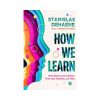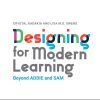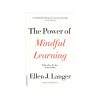Talk to the Elephant: Design Learning for Behavior Change
By Julie Dirksen
 Book | $38 - $49
Book | $38 - $49
Talk to the Elephant: Design Learning for Behavior Change is a guide for learning designers on how to use principles from behavioral science to create more effective learning experiences for behavior change.
What do you do when your learners know what to do but still aren’t doing it?
Training is supposed to be about changing behavior. But any learning designer knows that there’s a big gap between knowing and doing. You can create an engaging learning experience but often learners still go back to their regular world and do things the same way they always have.
In the last several years behavioral science has been researching behavior change, but only a fraction of that research has made its way back into learning design.
Talk to the Elephant: Design Learning for Behavior Change shows you how to add to your learning design toolbox to support behavior change. You’ll find out how to use frameworks and strategies from behavioral science to help you research and analyze challenges, feel more confident that you’re solving the right problem, and design and test solutions that can help people with difficult behavior changes.
What will you learn in this book?
By the end of this book, you’ll be able to:
- Map the change journey of your learners and identify their path.
- Assess and clearly communicate the value of the change.
- Use motivation models to better understand what learners really care about.
- Utilize evidence-based models like the COM-B Model to analyze behavior-change challenges.
- Use a diagnostic checklist to determine whether you actually have a training problem.
- Identify behavior-change techniques to address your specific challenges.
With evidence-based models from behavioral science, helpful tools, and many case studies, Talk to the Elephant will teach you how to create more effective learning for behavior change. Order your copy today
How is this book different from the first book?
First of all, if you are looking at this book because you also read my book Design for How People Learn, then THANK YOU. I’m very happy to know that the first book was useful enough to bring you back.
This book is an expansion and elaboration on the motivation chapter and some other points in Design for How People Learn. It’s a deeper dive on the topics, and my rough estimate is that 10 to 20 percent of the material will sound familiar to readers of the previous book, but if that’s not your experience, please let me know. All the words are new, but many of the principles have not changed between the two books, although this book is my attempt to incorporate the most update research available on these topics. You do not have to have read the first book to understand this book.
Who should read this book?
This book is intended for people who create learning experiences for adult learners. Specifically, this is for people who are designing or creating or implementing learning experiences that are intended to change behavior.
The book is not aimed at people who are trying to change their own behavior (e.g. self-help). It is also not aimed at childhood educators or people who are treating audiences with diagnosed conditions relating to mental or behavioral health (even though some of the strategies may be similar to strategies for those audiences).
Ratings
0
(0)
Share Your Insights
Your ratings help the community. Login or leave a review as a guest.
Log In Guest reviewRate the Resource

Talk to the Elephant: Design Learning for Behavior Change
How would you rate the resource?
Thank you
Thank you for confirming your email! Your rating is now being reviewed.
Oops!
You need to log in or create an account to report for rate the resource.
Log In Create Account









Leave a Reply